How Switzerland could help restore some UN credibility
Since January 1, Switzerland has taken up a historic first seat on the UN Security Council, vowing to promote peace, security and reform. This is a tall order in the current geopolitical climate, but Switzerland has some assets.
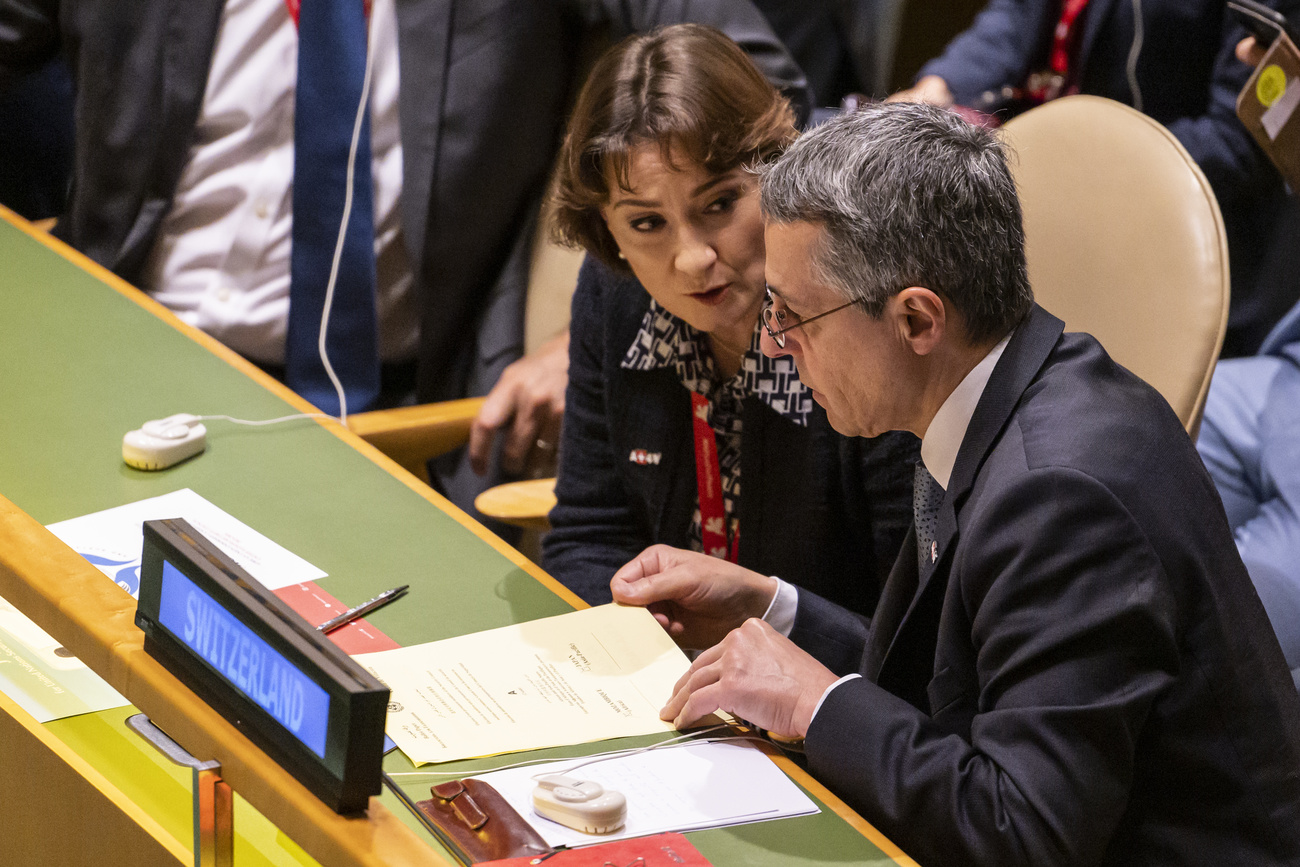
From January 2023 Switzerland will act as a non-permanent member of the 15-member Security Council for two years. It will not have a veto like the five permanent members Russia, China, the United States, France and the United Kingdom. The Security Council is the most important body for ensuring peace and security in the world, but its already damaged credibility has been further undermined by its failure to stop the war in Ukraine. Russia also used its veto to block a resolution condemning its invasion.
So can little, veto-less Switzerland help push for reform?
“Absolutely,” says Thomas Biersteker, an honorary professor at the Graduate Institute in Geneva who has worked with the Swiss foreign ministry and is a specialist on the UN Security Council. “It’s already been doing that for more than a decade. But being inside will give Switzerland an opportunity it has not had in the past to have greater access and raise issues of priority concern.”
The Swiss government has set four priorities for its membership of the Council, notes Thomas Gürber, head of the foreign ministry’s UN division in Bern: promoting sustainable peace, protecting civilians, addressing climate security and enhancing the effectiveness of the Council. He says Switzerland wants to “work with all partners” and make available its peace policy expertise. Switzerland will also get a turn at chairing the Council twice, in May 2023 and then again for a month in 2024. This “will give us an opportunity to introduce our priorities into the discussions”.
One Swiss diplomat told SWI swissinfo.ch that the most important job at the moment, whilst not the most spectacular, is probably to “try to protect the international legal order, which is under threat” and that “we will try to support and strengthen international law and build alliances with others trying to support and strengthen international law”. That might sound abstract, admits this diplomat, but “it’s a daily job with every resolution”.
Russia’s invasion of Ukraine is widely seen as a violation of international law and of the UN Charter. There is also much concern about its targeting of civilian infrastructure, which goes against International Humanitarian Law as defined by the Geneva Conventions. While there are also many other violations of international law around the world, it is particularly worrying given Russia’s power and position in the UN.
Security Council in a ‘difficult’ place
Adam Lupel, Vice-President and Chief Operating Officer at the International Peace Institute (IPI) in New York, says the situation of the Security Council right now is “dramatic and difficult”, with a potential to get worse. There was a lot of concern at the beginning of the Ukraine war that the Council would become completely gridlocked, he told SWI, but it continues to work on many things, albeit the ones that are less contentious among the big powers. For example, it has renewed peacekeeping mandates in Africa, and in March the mandate of the UN Assistance Mission in Afghanistan. The situation is not as bad, he says, as during the Cold War in the 1980s, when continual disagreement between veto powers the US and Soviet Union paralysed the Council.
At the foreign ministry, Gürber agrees that times are difficult, and the Ukraine war is affecting cooperation in the Security Council. “The Council has reacted to the development of the war in Ukraine with a high frequency of meetings but is unable to take any decisions on Ukraine due to the Russian veto,” he tells SWI.
In the past few years, the Council has also failed to take strong action on countries like Syria and Myanmar because of the Russian and Chinese veto powers.
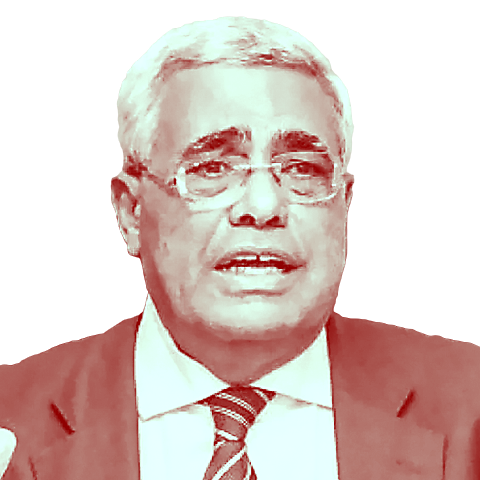
More
New world stage calls for overhaul of UN Security Council
But Gürber agrees things are not completely gridlocked, with meetings taking place as scheduled and decisions on many issues. “However, it remains to be seen to what extent cooperation beyond the Ukraine dossier can be maintained and whether the Security Council remains capable of acting,” he continues. “In addition to the war in Ukraine, the current multiple crises – such as the consequences of Covid-19, climate change, and shortages of food and energy – are challenging the international community and the Security Council.” All these crises have an impact on international peace and security.
With the Security Council permanent members more or less divided into two opposing blocs, Biersteker in Geneva thinks the main challenge for Switzerland will be “navigating the politics of the Council and trying to keep channels open”. This challenge is the same for other elected members, but Switzerland has a long history of bridge-building and mediation.
The country has a history of providing mediation in conflicts and hosting peace talks, as well as its protecting power mandatesExternal link to represent the interests of countries in conflict in their respective territories.
Swiss assets
So what can Switzerland bring to the table? Ambassador Gürber says that in all the priority areas it has set, the Alpine country has a credible track record which is recognised by the international community, “for instance in the field of good offices or in our humanitarian work”.
Biersteker agrees that Switzerland’s history of neutrality and “accessibility” to parties in conflict should be an asset. “I think it also has capacity,” he tells SWI. “And by that, I mean a high-quality diplomatic corps, capable, fair and balanced. Switzerland has capacity that the other elected members do not have.”
“The Security Council is in a difficult place given the relations between the great powers,” says Lupel. “But there are opportunities to do work. And I think Switzerland is well-placed to have a positive impact in that work because of its position as a bridge-builder, as a recognised champion of international law, as the host of the Geneva Conventions.”
Chipping away at the veto
Since the start of the Ukraine war, much interest has focused on whether the veto powers of the five permanent members could be removed or limited. This is an old, institutional problem, and Russia is not the only one of the so-called P5 to have used its veto in the past to block resolutions they did not like. The right of veto was a concession to the major powers to convince them to participate in the founding of the UN in 1945 following the Second World War. This was after its predecessor, the League of Nations, had failed due to its inability to act.
“Switzerland is not an advocate of the veto,” says Gürber. “However, abolishing the veto would require an amendment to the UN Charter and would only be possible with the consent of two-thirds of the UN member states and of all veto powers. This is not realistic. Switzerland is therefore committed to greater transparency and efficiency in the UN Security Council. Switzerland sees itself as a bridge-builder in this discussion.”
Even as a non-member, Switzerland has been working on this for some time. It has long called for veto powers to abstain from using it in cases of international crimes. Gürber notes that in 2015, the Accountability, Coherence and Transparency Group (ACT) at the UN, a cross-regional group of small and medium-sized countries coordinated by Switzerland, proposed a “Code of Conduct regarding Security Council action against genocide, crimes against humanity or war crimes”. This urges all Security Council members not to vote against any credible draft resolution meant to prevent or halt mass atrocities. Over 120 states have signed the Code of Conduct, he says, “and we would like to further increase this number”.
Switzerland also backed a resolution in the UN General Assembly in April that makes those who use their veto power more accountable. It provides that they must come and explain the decision to the 193-member General Assembly. The General Assembly does not have binding powers like the Security Council, but it includes all 193 UN member states and carries moral authority. This resolution was brought by another small state, Liechtenstein. Since then, the new rule has not stopped Russia and China using their veto powers (against proposed resolutions on extending humanitarian corridors in Syria, sanctions on North Korea, Russia’s veto of a resolution condemning its annexation of four Ukraine regions), but they now have to come, explain and face a discussion. Experts say it is too soon to tell if this new rule will deter use of the veto in the longer term, but it certainly adds more transparency and diplomatic pressure.
Bridge-building
Switzerland’s natural affinity is with the Western bloc, but it says it will also try to work with countries across regions, depending on the issue. The Alpine country has relatively good relations with China, which it can perhaps use on some issues like climate change and protecting civilians in conflict. Bern could also work with Beijing with regard to Africa, where China has influence.
“I think Switzerland, if I understand aright, has a very good relationship with China,” says Lupel. “So Switzerland could perhaps serve as a bridge between Europe and China, and then China to Russia.”
As for Russia, it has called Switzerland an “unfriendly country” after Bern followed EU sanctions on Moscow over the Ukraine war. It has also refused a Swiss offer of “good offices” to represent Russian interests in Ukraine and vice versa (accepted by Ukraine). But, rather controversially, Swiss foreign minister Ignazio Cassis could be seen shaking hands with his Russian counterpart Sergei Lavrov on the sidelines of the UN General Assembly in September.
“I’m obviously not a fan of Russia’s invasion of Ukraine, but I think it’s very important to keep some channels open,” says Biersteker. “At some point the war will end, hopefully sooner rather than later. At some point there will be a negotiated settlement. You can’t simply vilify, demonise others, even if you profoundly criticise their actions and behaviour. I think Switzerland here again can play the key neutrality role.”
Edited by Imogen Foulkes. This article was originally published on October 28, 2022.
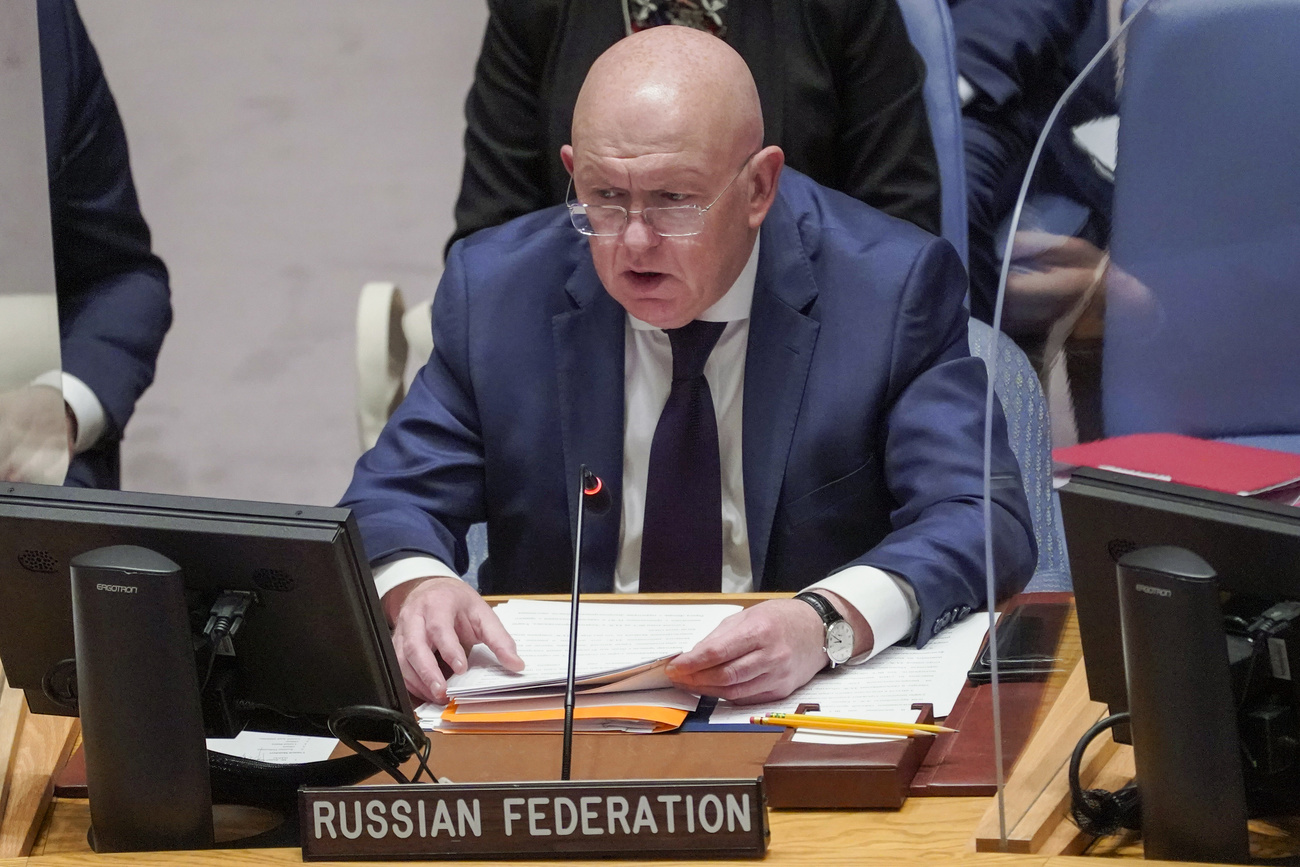
More
UN Security Council needs rebuilding, says former Swiss diplomat

In compliance with the JTI standards
More: SWI swissinfo.ch certified by the Journalism Trust Initiative









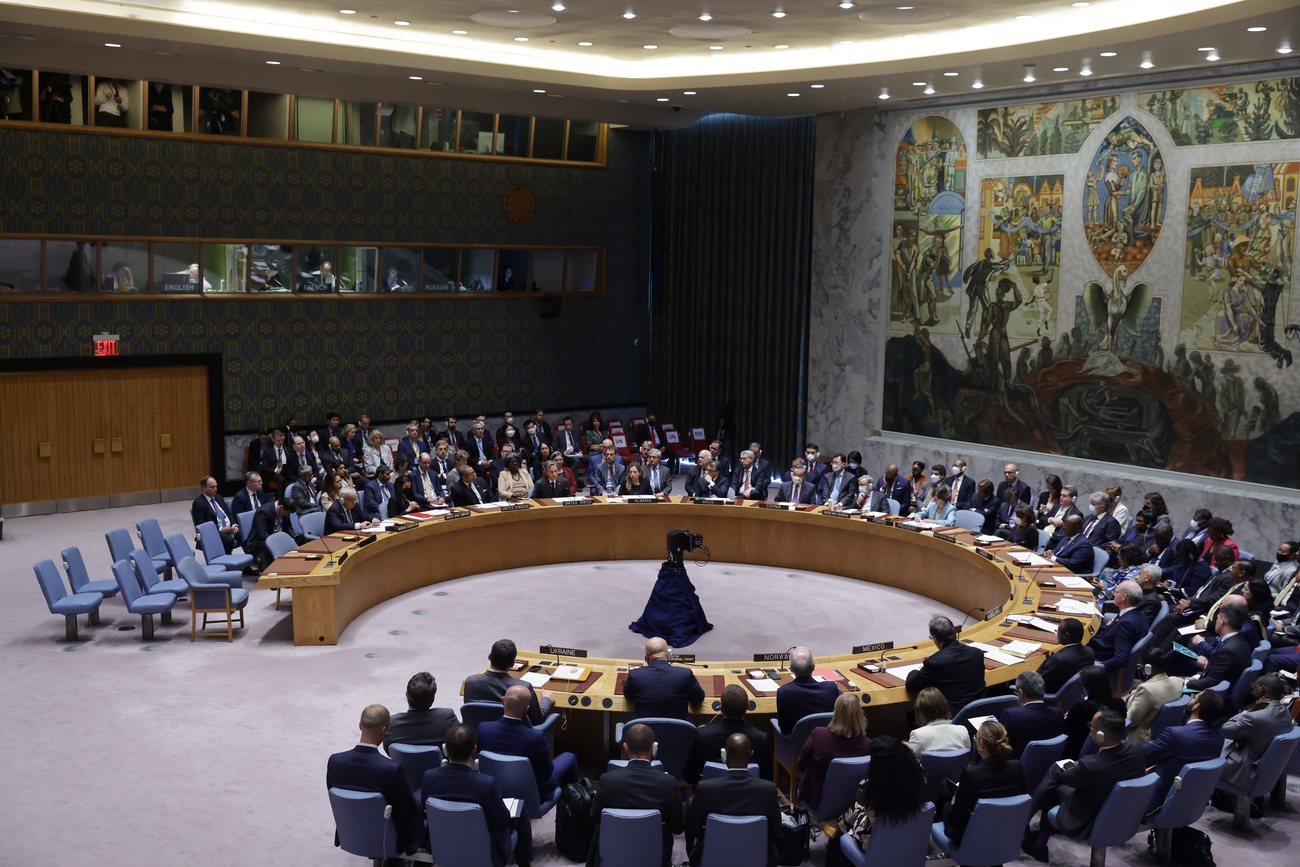
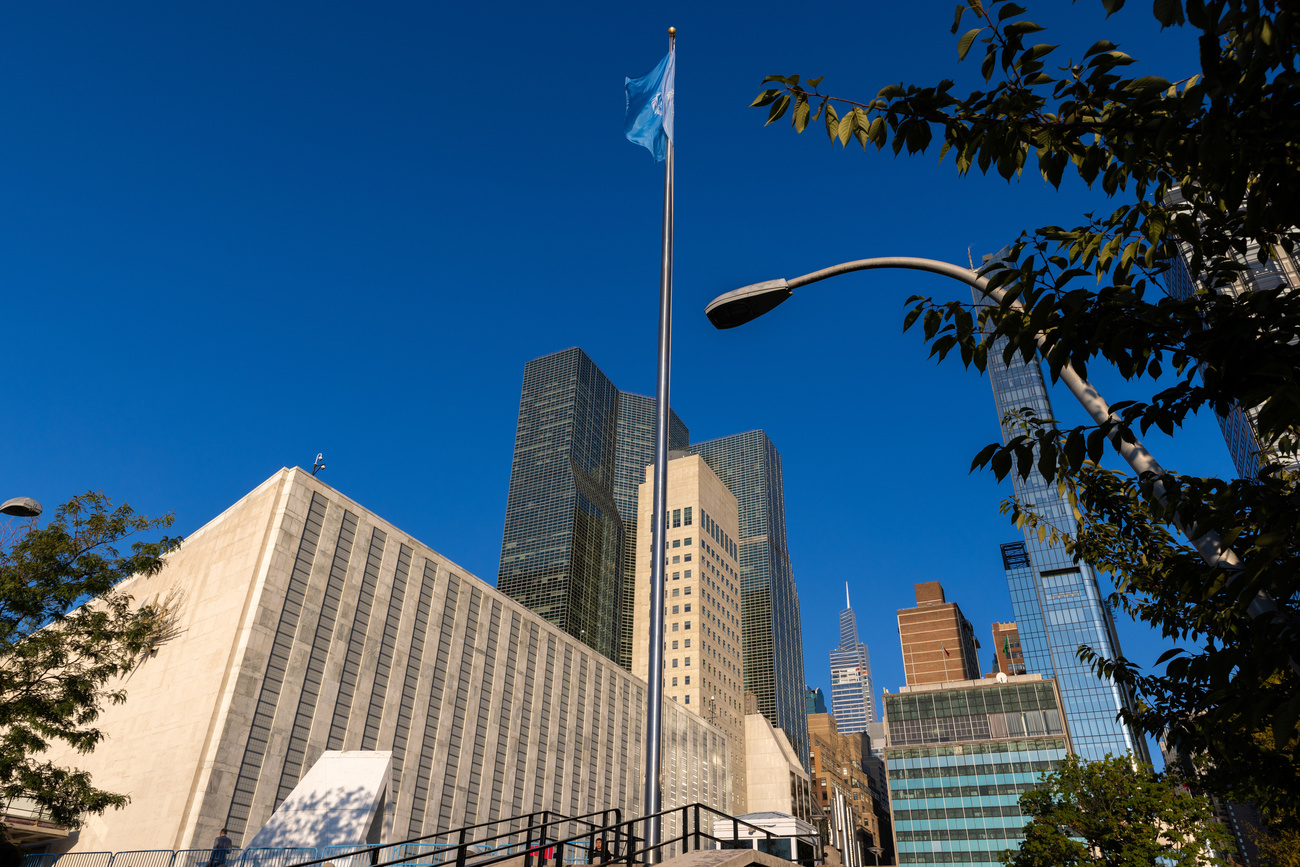
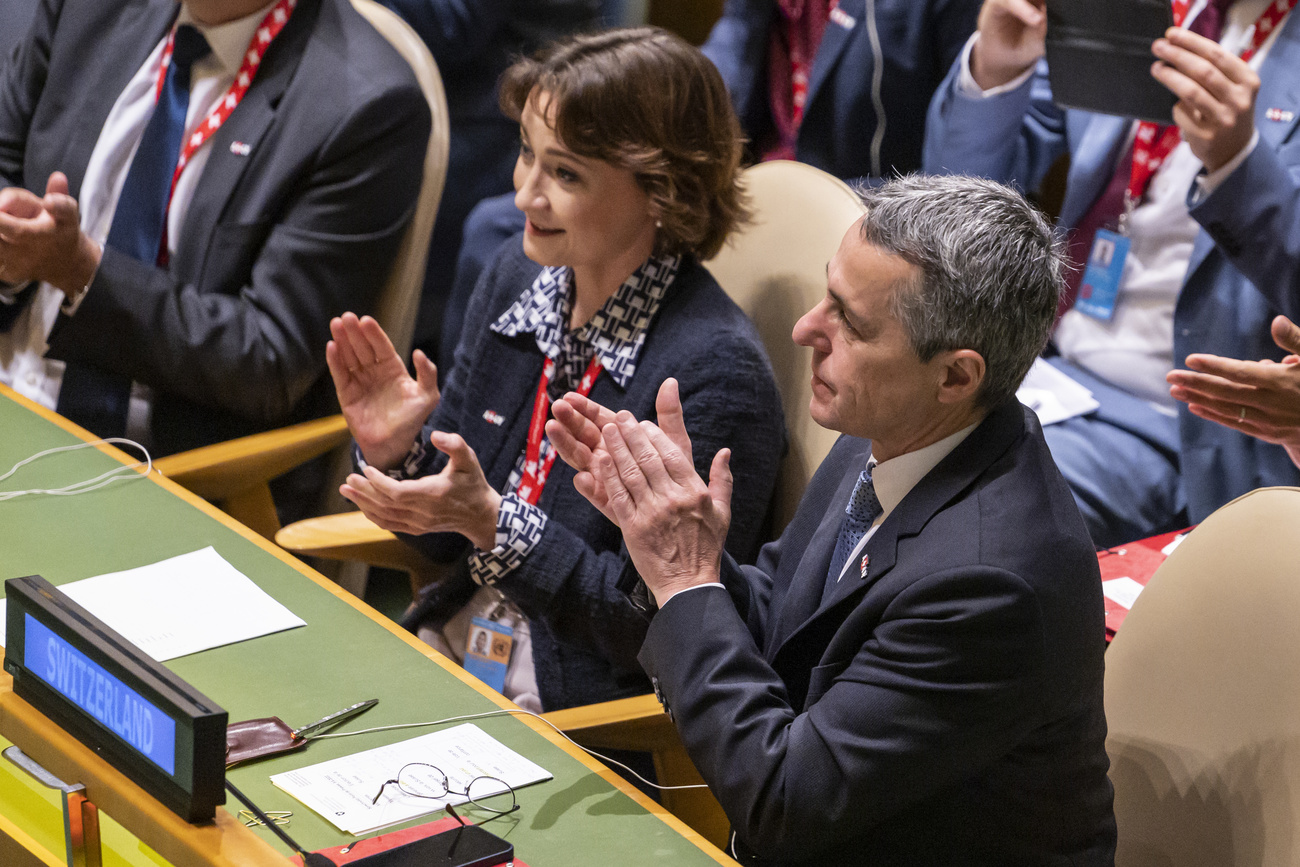
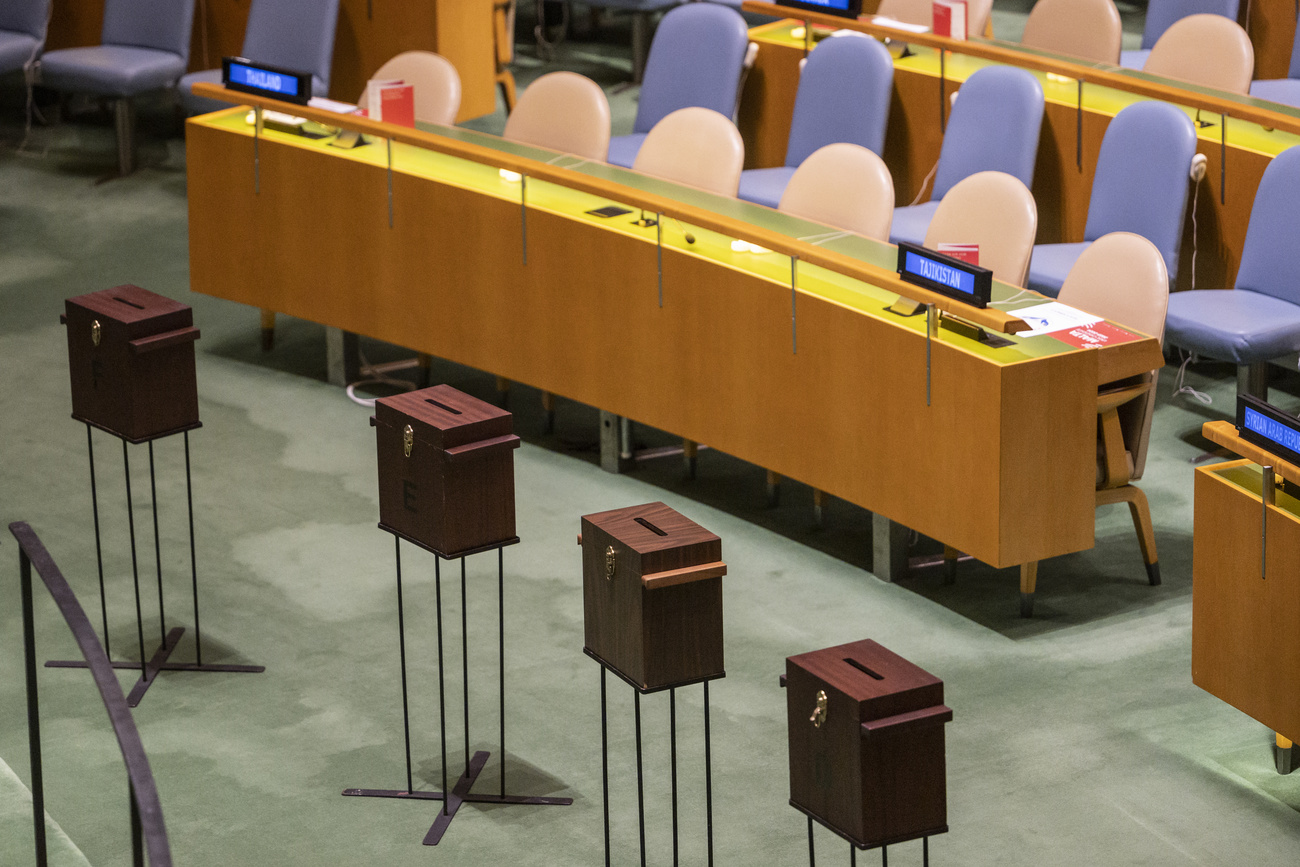
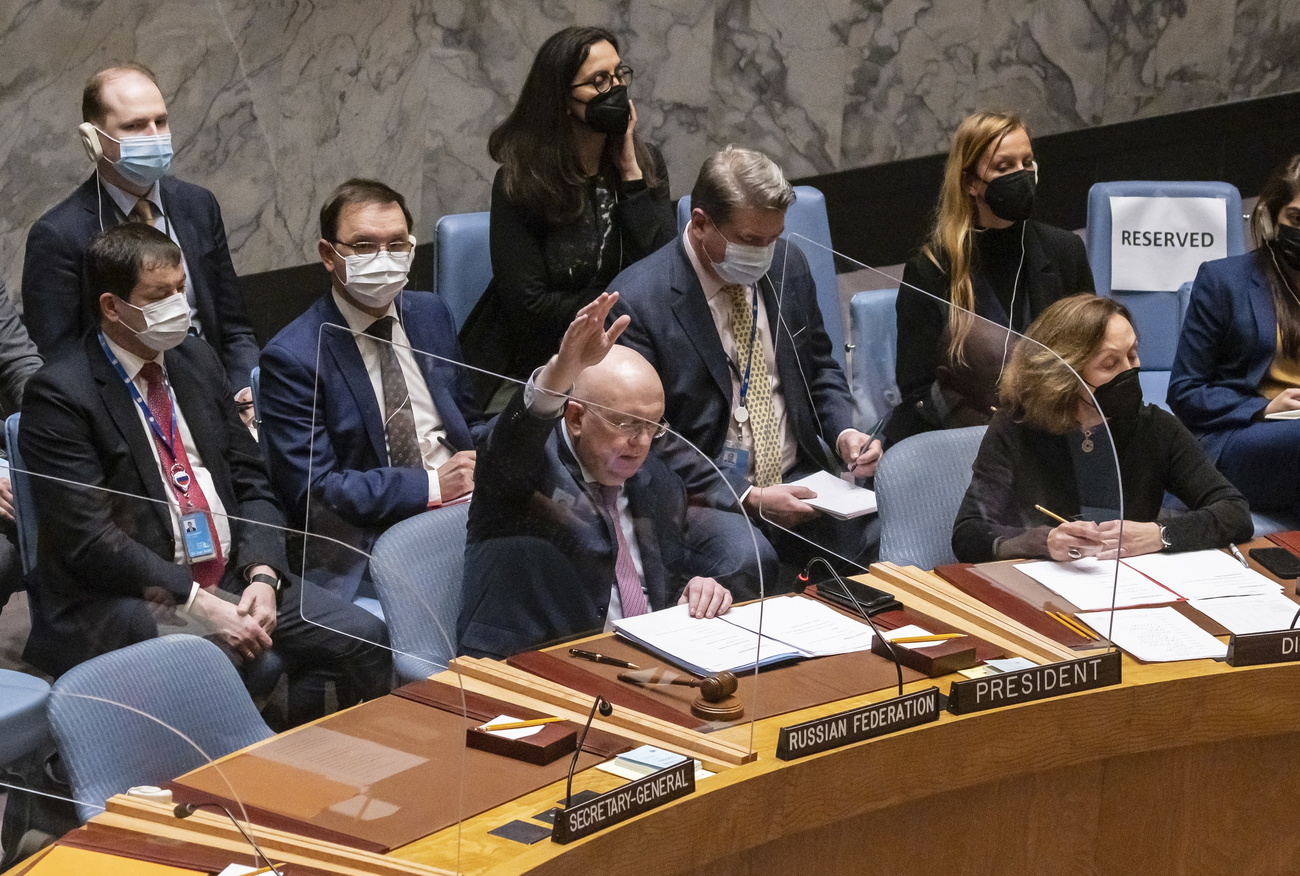

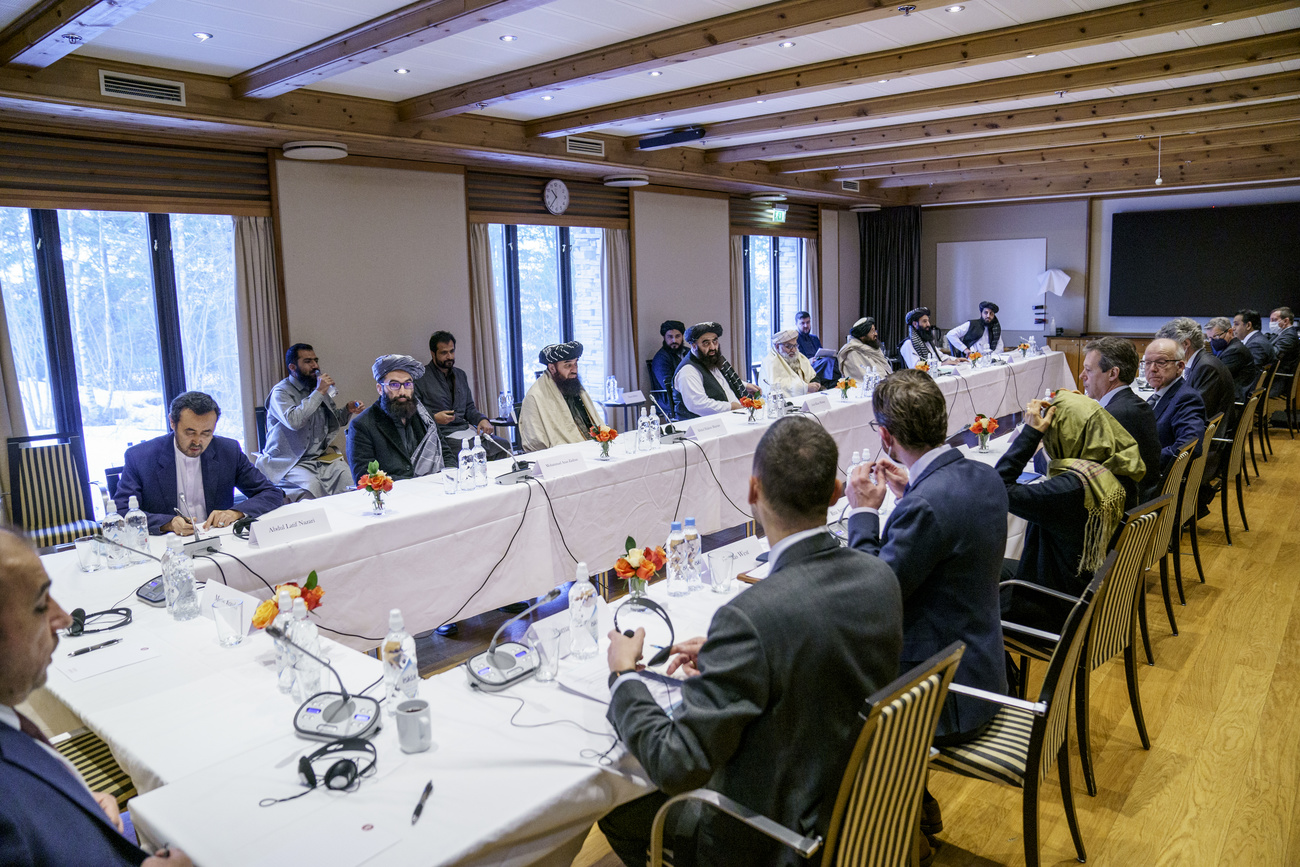
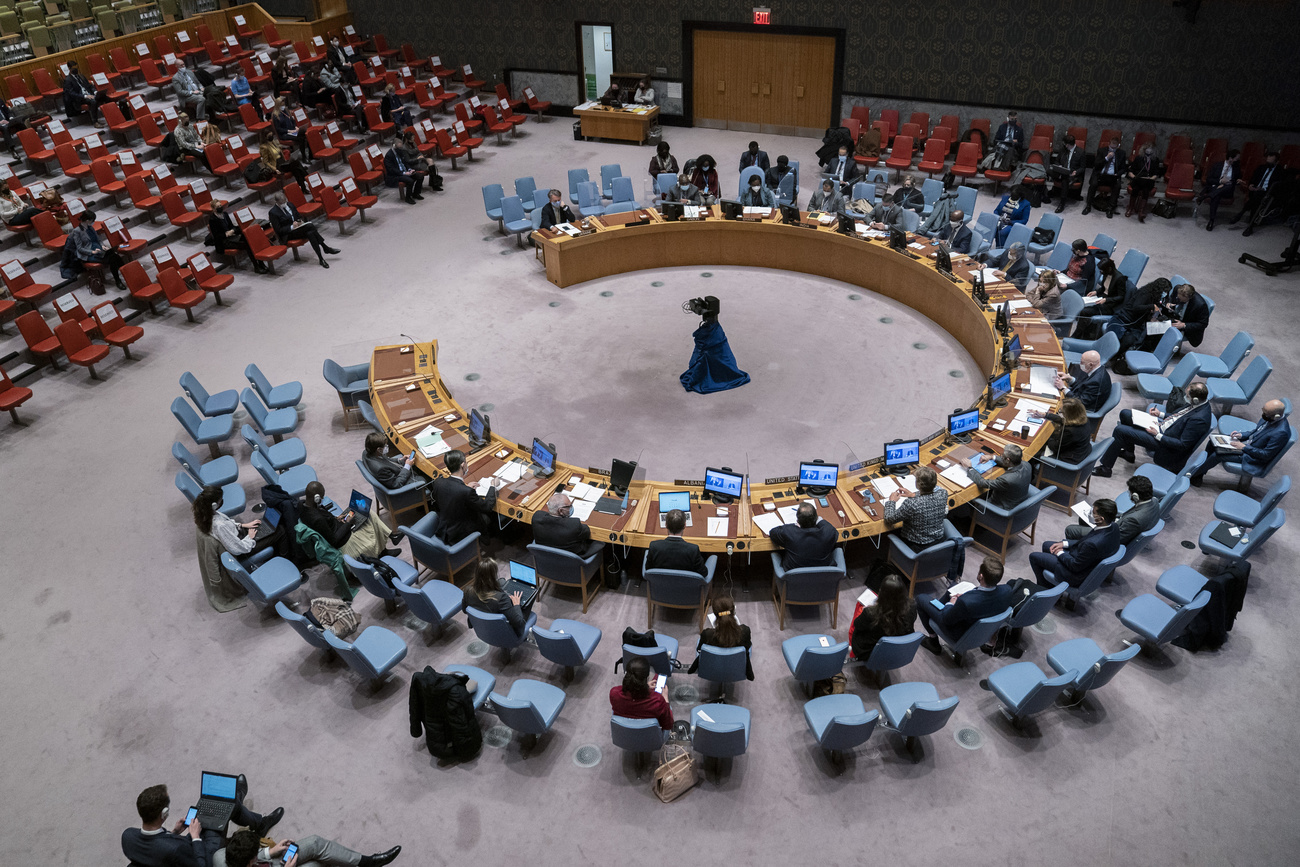
You can find an overview of ongoing debates with our journalists here . Please join us!
If you want to start a conversation about a topic raised in this article or want to report factual errors, email us at english@swissinfo.ch.